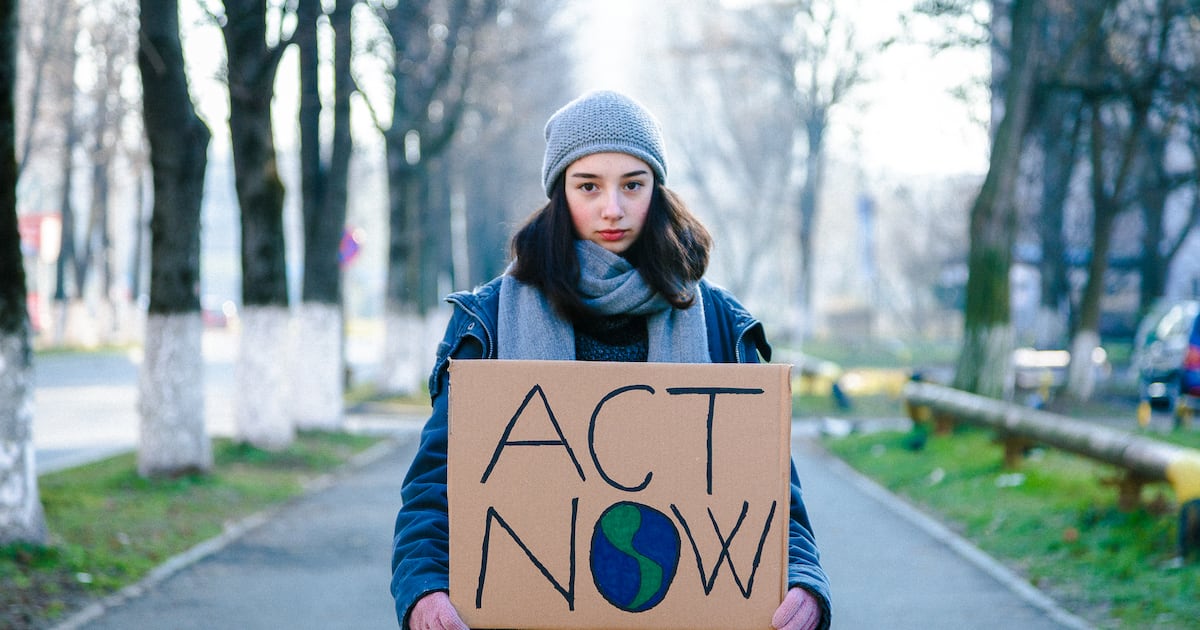For those of us who work on climate policy and environmental advocacy, these past nine months have been distressing and depressing.
Last year was Earth’s hottest year in recorded history. We are on course for disastrous levels of global warming but it isn’t getting much publicity in an attention economy dominated by war, genocide and billionaire meltdowns.
The west of Ireland was without heat, light and water due to climate-induced storms but apparently our misery was the fault of the Greens who robbed people of self-reliance in the form of solid fuels, not climate change.
And those climate strikers from 2019? Well, they went back to school and are likely now wrestling with the housing crisis on top of everything else.
The reasons for the hiatus are obvious to anyone who has been keeping up with the news. There’s a climate denier in the White House and across Europe centrist parties are taking a scalpel to environmental protections in an unseemly effort to keep up with the far right.
Public debate is intentionally confused by social media “slop”, greenwashing and misinformation. The latest hooey is that solar panels cause bovine TB. Measures that should be win-win for public health and climate, like replacing fossil fuel boilers with heat pumps, have become bogged down in culture wars.
Progress has also been derailed by opportunistic U-turns by political groups such as the UK’s Conservative Party who were once proof of the salience of climate action on the right of the political spectrum.
If you’re thinking that now is the ideal time to return to street protest, that’s not so easy these days either. And to top it all, the spectre of war and genocide leaves the climate movement, somewhat chaotic and broad-church like all social movements, struggling to hold its fragile coalition together. How do we justify the fight for nature and climate action when the world seems to be breaking apart?
At home the political appetite for climate action has faded since the departure of the Green Party and their replacement with largely anti-environment rural independent TDs.
[ Hottest year on record as 2024 breaks 1.5 degrees global warming limitOpens in new window ]
That there is a green-shaped hole at the heart of Irish politics is all too evident, especially when one looks at the quantity and quality of climate-related debates in the Oireachtas. One climate expert recently wondered out loud if perhaps we need a new political party to refocus the climate agenda and to build the kind of cross-party consensus that climate action requires to get over the line.
I should acknowledge I have some skin in the game here: I was an elected green councillor in the 1990s. I supported – and would do so again – the Green Party’s entry into government in 2020 and I still think Eamon Ryan is the outstanding politician of his generation. I stood (unsuccessfully) for the Labour Party in the 2024 general election and as a candidate in the TCD Seanad election.
I did not leave the Green Party because it was not doing enough of this or that. Its policies and vision are true to its founding principles. However, in government, the Green Party became more of a think tank than a political party. It became increasingly detached from its roots, while on the ground it was obvious its flagship policies were mostly reaching the middle classes in urban areas leaving rural communities, renters and households in poverty out in the cold.
My belief is that this type of green politics is not going to work. Those of us who want radical cuts to fossil energy use need to be much more patient with our detractors and much more robust in calling out climate obstructionism by vested interests, greenwashing and regulatory capture.
We need to stand with people who are experiencing injustice and listen rather than preach (we are only reaching the converted anyway). We need to acknowledge the enormity of the damage our economic model is doing to the environment before we ask people living in precarity and poverty because of that same model to make sacrifices.
We don’t need a new green political party; we need a new type of green politics. Most of all, we need to rebuild a strong climate movement. Such an alliance could be radical in its commitment to both social and environmental justice, and at the same time pragmatic by focusing on solving problems instead of endlessly debating their causes.
[ You can’t choose the times you live in. And sadly we live in an age of extinctionOpens in new window ]
It should inspire co-operation across party lines as well as show young people that the adults in the room are finally taking action and that they have a place at the table too. We have an opportunity to demonstrate unity in the face of climate breakdown at the global climate march on November 15th to coincide with Cop30 in Belém, Brazil.
The task of decarbonising Ireland and restoring biodiversity is going to take decades of sustained political effort and co-operation. We must be willing to experiment and sometimes fail. We must not let ideological differences or domineering personalities derail us. Because we only have one shot at saving our future.
Sadhbh O’Neill is an environmental and climate policy researcher
